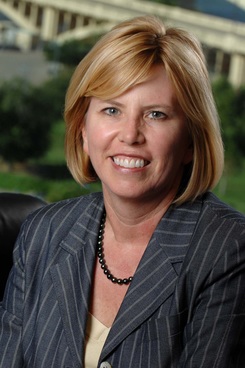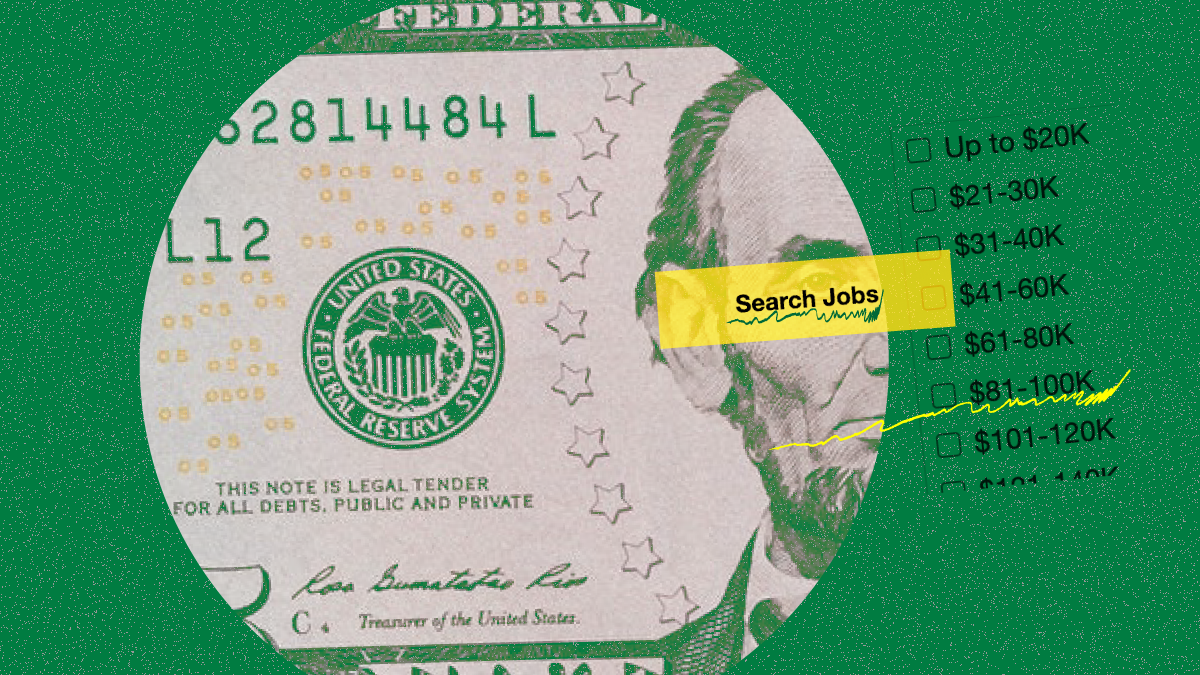Abortion rights, women of color, and LGBTQIA+ people are under attack. Pledge to join us in fighting for gender justice.
Five Things You Should Know About EEOC Chair Nominee Janet Dhillon

Tomorrow, the Senate Health, Education, Labor and Pensions (HELP) Committee will hold a hearing to consider President Trump’s nominees for the Equal Employment Opportunity Commission (EEOC): Janet Dhillon, the Executive Vice President, General Counsel and Corporate Secretary at Burlington Stores, Inc., to be Chair, and Daniel Gade, a veteran and West Point instructor, to be an EEOC Commissioner. The EEOC enforces employment antidiscrimination laws in the private workforce and federal sector that are critical to workplace fairness and opportunity for women across the country.
In what is becoming a worrying trend, the Committee will hear from Dhillon, Gade, and another individual nominated for an important executive branch position during the same hearing – a tactic used recently during the hearing for Trump’s nominee to lead the Department of Justice Civil Rights Division, which was combined with the hearing on four separate judicial nominees, sharply limiting the time to probe each candidate’s record.
With the Trump Administration’s recent all-out assault on civil rights – like scrapping an equal pay data collection initiative and arguing LGBTQ people aren’t protected from workplace discrimination – the EEOC’s role in enforcing workplace antidiscrimination laws is more important than ever. The Senate should take a close look at Dhillon’s record and her fitness to lead America’s employment antidiscrimination agency.
Here are five things you need to know about Janet Dhillon:
- She has no experience enforcing antidiscrimination laws, either in the public or private sector.
Like many Trump nominees (and the President himself), Dhillon has no experience working in the public sector or leading a government agency. Prior to her work at Burlington, Dhillon worked in private law practice and as general counsel at both US Airways and JC Penney. As general counsel to two retail giants, her only experience with labor and employment issues was to represent and defend employer-side interests – experience at odds with the mission of a major civil rights agency charged with promoting employees’ rights. Unlike the bipartisan group of commissioners she’d join at the EEOC, each of whom had years of experience developing and enforcing antidiscrimination laws before becoming commissioners, Dhillon’s record raises concerns about her fitness to effectively lead a government agency tasked with putting the rights and welfare of employees first.
- Dhillon would take over leadership of the EEOC at a time when equal pay is under siege, but we don’t know where she stands on collecting pay data.
The Trump Administration has recently mounted a sustained attack on equal pay that the next EEOC chair will have to reckon with. In March, Trump signed into law a bill that rolled back the Obama fair pay and safe workplace executive order requiring companies bidding for federal government contracts to disclose any past violations of workplace safety, labor, and antidiscrimination laws. Then, last month, the Administration stayed the EEO-1 equal pay data collection initiative that required large companies to confidentially report information about what they pay their employees by job category, sex, race, and ethnicity to the EEOC. The equal pay data collection would have been a critical tool to help identify pay discrimination, improve enforcement of pay discrimination laws, and increase voluntary employer compliance with those laws.
Now it’s up to the EEOC to figure out a path forward on the equal pay data collection, and it’s no coincidence that Trump is trying to install two new commissioners. It’s concerning that Dhillon hasn’t taken any public position on common sense equal pay policies like the equal pay data collection, which the EEOC would be able to implement if the new Chair were to make it an agency priority. We’ve urged Congress to make equal pay a priority by saving the equal pay data collection, and we’re urging the EEOC nominees to do the same.
- Dhillon co-founded and serves on the board of a retail industry group that advocates for limiting the workplace protections she would enforce as EEOC Chair.
Dhillon helped found and currently sits on the board of the Retail Litigation Center (RLC), a coalition of retail company lawyers created to advocate for “the retail industry’s perspective in [] judicial proceedings.” In other words, the RLC tries to influence courts to be more retail industry-friendly by advocating for narrowing or restricting workplace protections – like tightening class action standards, making it harder for employees to successfully sue employers for discrimination and harassment, and upholding strict mandatory arbitration and class action waivers, just to name a few. It’s concerning that a nominee for the EEOC took positions in important Supreme Court cases arguing against female Walmart employees’ ability to come together to challenge pay discrimination, or advocating to make it more difficult to hold employers liable when their supervisors sexually harass employees.
Dhillon’s leadership on behalf of the retail industry, where women face particularly low pay and persistent discrimination, makes us wonder how willing she’ll be to vigorously enforce the very workplace protections she’s advocated against in the past.
- She oversaw JC Penney at a time when it engaged in repeated labor law violations.
As general counsel of JC Penney, Dhillon was in charge of ensuring the company’s compliance with labor and employment laws. However, during her time there, the company faced large employee class actions alleging labor law violations, including overtime wage theft and the failure to pay accrued vacation benefits to part time employees. A potential Chair of the EEOC should be accustomed to looking out for working people, not finding ways to evade the laws that protect them.
- Dhillon’s husband is a lawyer in Trump’s White House who has sought to block Congressional oversight over federal agencies.
Dhillon’s husband, Uttam Dhillon, is currently working in the White House Counsel’s office on Trump’s Compliance and Ethics team. Given that Trump’s White House is a family affair, it’s perhaps unsurprising that the staffing up of federal agencies will also favor family connections over experience relevant to pursuing the agency’s mission. More worrisome, though, are Mr. Dhillon’s recent statements that federal agencies should not cooperate with oversight requests from Democratic members of Congress. Dhillon should be asked whether she agrees with her husband and whether as Chair she would be responsive to such requests, as without Congressional oversight from legislators who support the rights of working people and robust enforcement efforts, it will be difficult to ensure that Janet Dhillon is in fact promoting equal employment opportunity and enforcing the rights of working people, instead of corporations.
We’ll be listening closely to Dhillon’s testimony, and we hope members of the HELP Committee do too. And we are telling the Senate—if Dhillon will not commit to supporting an equal pay data collection, then she should not be confirmed. Working women and the families that depend on them can’t afford to wait any longer for equal pay, and deserve better.




